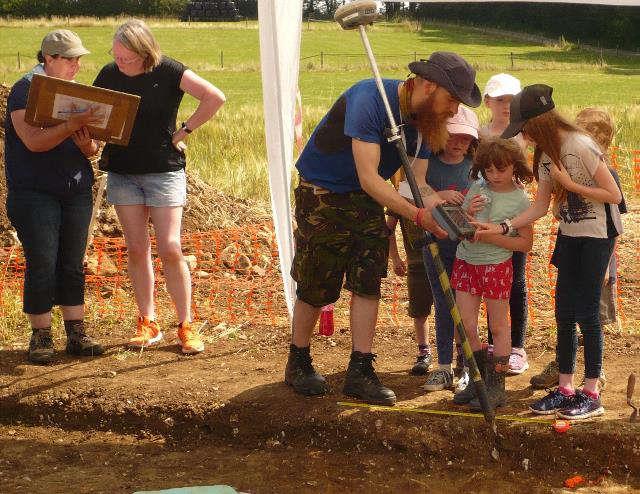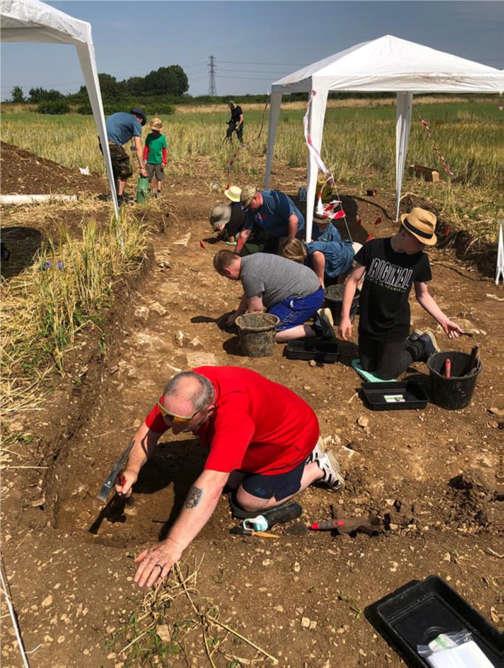Wings to the Past
Wings to the Past was awarded £20,000 as part of the Local Grants programme in 2018. A steering group from the RAF worked together with Lincolnshire County Council on a project aimed at bringing down personal barriers, allowing RAF personnel and their families to get closer together and forge connections through the medium of archaeology.
The 15 families worked together to research, dig and excavate a Roman ruin in Riseholme, near to several RAF bases in Lincolnshire. The nine-month long project had a number of long-lasting effects on the lives of the families who took part.

One of the main organisers of the project, Brian James, explained how mental health issues were taking their toll on the RAF personnel and their families who were serving in the area. The strain of deployment and the subsequent isolation of the families from their loved one was having a negative effect on all their lives. Brian became involved in a local archaeology group, and during a dig near RAF Waddington, discovered the mindfulness and positive feelings that being involved in an archaeological excavation could bring.
From this, the concept of Wings to the Past was born, and through collaboration with Lincolnshire County Council and a local archaeological company, funding from the Trust was then applied for. The project also included assistance from staff at the University of Lincoln. Families taking part also participated in classroom sessions, workshops and other theoretical activities before the three-week dig commenced.
For Brian, seeing how the families benefited by bonding with each other and the other participants was the highlight of the project.
“It was the hidden things that were the success of the project. One lad said that being with my Daddy was the best part (of the dig), and that hit me like a steam train”.

Another participant in the project, Sandra, said that when she first signed up to take part, she wasn’t sure what to expect. However, she confirmed that “for her, the project was so much more than archaeology, there was such a sense of community and peacefulness during the activity.”
Leigh, another participant said that for him, the project was “very, very special”. Having had five different jobs and three operational deployments during his last four years in the RAF, family time was something that had been put on the back burner. He has two children, now aged 9 and 12, and admitted that there was “lots of turbulence” in his life. He agreed that the best part of the project was getting to spend time with his family, and to bond with his children over archaeological finds. His daughter found a Roman coin, which caused much excitement, and this spurred the family on to do their own research.
Leigh surmises that this project on its own would have saved the NHS a great deal of money in mental health provision. He reflects, “if the project saved just one marriage in the process, it would have been worth it. I signed up to do archaeology, but it was a lot more than that”.
Due to the overwhelming success of the project and the effect that it had on the 15 families who took part, Brian’s initial idea was to roll it out on a national basis. Unfortunately, due to Covid, this idea has now had to be postponed for the next year or so. However, the group intend to research and apply for further funding so the model can be rolled out to other military groups, not just at RAF bases.